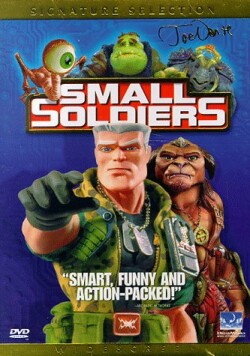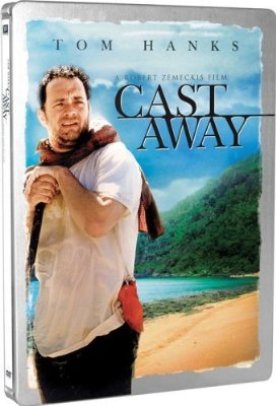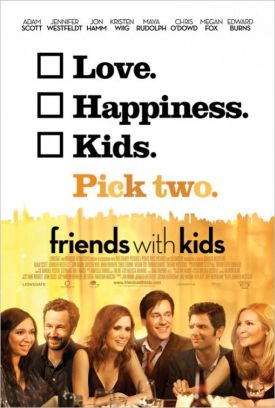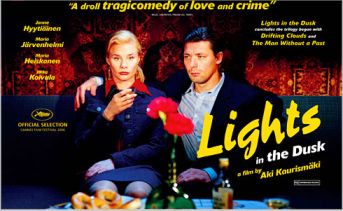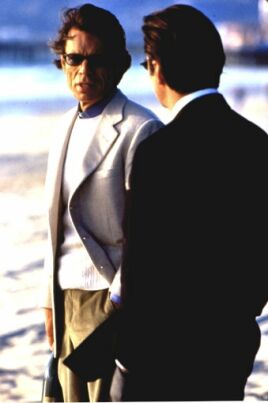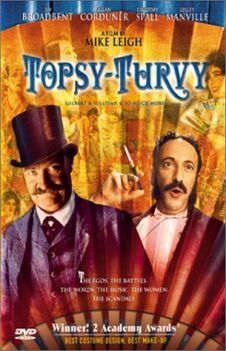Insider, The
Somewhere near the end of The Insider, written by Eric Roth and
directed by Michael Mann, we overhear a TV announcer talking about “a fraud
perpetrated on the American people”—by which he means the tobacco
companies’ concealment from public view of what they know of the harm caused by
their product. But the real fraud lies in the assumption behind this film, most
of the journalistic commentary on tobacco and, most strikingly, the shakedown by
which hundreds of millions of dollars have been legally extorted (or so we would
call it if it were illegal) from the tobacco companies. The fraudulent premiss
on which all of these things are based is that somebody
else—somebody who has, by a happy coincidence, very deep pockets with
which to pay all those punitive damages—is responsible for a smoker’s
decision to smoke. I say nothing of that other profitable fraud, to which this
one is inextricably linked: namely, the American delusion that, as someone once
put it, death is optional.
We wear ourselves out, one way or another. We eat too much and drink too much
and smoke too much; we work too hard and play too hard and take too many risks.
Any or all of these things can kill us. And if we try to avoid them all we will
die anyway. People make their choices about what they will spend (or squander)
their lives on. Why should we pick on only one such choice and pretend it is not
a choice at all but an evil plot by some hitherto unsuspected tortfeasor? If
those who are sick from smoking can sue tobacco companies, why can those who are
sick from overeating (and there are many more of them) not sue the farmer or the
grocer for having sold them all the animal fat with which they have stuffed
themselves over a lifetime? Why can’t c.e.o.’s sue their boards of directors for
rewarding ambition when ambition and its concomitant, overwork, have make
them sick? Why can’t Evel Knievel and his kind sue the makers of the
motorcycle on which they have been injured by trying to jump over too many
buses?
The whole charade of hunting down and punishing tobacco companies and their
executives is a journalistic concoction, a false drama got up in the absence of
any real dramas (or any that people seem to care about) in order to get the
suckers to tune in or to buy more papers. Naturally Hollywood, being itself
rather short of dramatic material these days, wants to get into the act and does
so here. The result is a movie all about hiding and revealing The Truth that is
entirely based on a lie—the lie that somehow the health risks of tobacco
have been concealed from us. On the one hand, the movie throws up its hands in
mock horror that the presidents of the major tobacco companies pretended they
didn’t know smoking was bad for you; on the other hand, their entire case
against Big Tobacco (as they call it for propaganda purposes) depends on exactly
the same pretense on the part of those who sue. And why beholdest thou the mote
that is in thy brother’s eye, but considerest not the beam that is in thine own
eye?
Almost as unattractive as this self-interested imposture is the film’s other
main theme, which is the well-worn trope of the heroic journalist. Although it
starts out being about the brave “whistle-blower” from Brown and Williamson,
Jeffrey Wigand (Russell Crowe), this gentleman soon fades from sight when the
media people come on the scene. He proves sadly uncompetitive in the glamor
stakes. So instead, Woodward and Bernstein ride again, this time all rolled up
into one in the diminutive person of L’il Al Pacino. He plays a radical producer
for “60 Minutes,” Lowell Bergman, who battles against the corporate types at
CBS, afraid of being sued just as the network is being sold, and in the end
against his own more cautious superiors, the producer Don Hewitt (Philip Baker
Hall) and the reporter Mike Wallace (Christopher Plummer).
Were it not otherwise so wholly devoted to bunkum, the movie would be worth
seeing for Plummer’s impersonation of Wallace, who is meant to come off as an
overbearing stuffed shirt. “When I’m conducting an interview, I sit wherever I
damn please!” he says arrogantly to a leader of the Hezbollah whom Bergman’s
hard work has got him an opportunity to interview. In fact, I liked him better
than the insufferable prig, Bergman, the self-appointed extra-legal scourge of
corporate America who openly claims the once-fashionable 1960s Marxist, Herbert
Marcuse (the guy who invented that wonderful bit of political dadaism,
“repressive tolerance”), as his “mentor.” That Wallace is prepared to refrain
from “tortious interference” with Mr Wigand’s confidentiality agreement with
Brown and Williamson because “I don’t plan to spend the end of my days
wandering in the wilderness of public radio” seems eminently sensible to me.
Funnily enough, it is Bergman who now works in public broadcasting. Best
place for him. Best place for this silly movie too.
Discover more from James Bowman
Subscribe to get the latest posts to your email.


